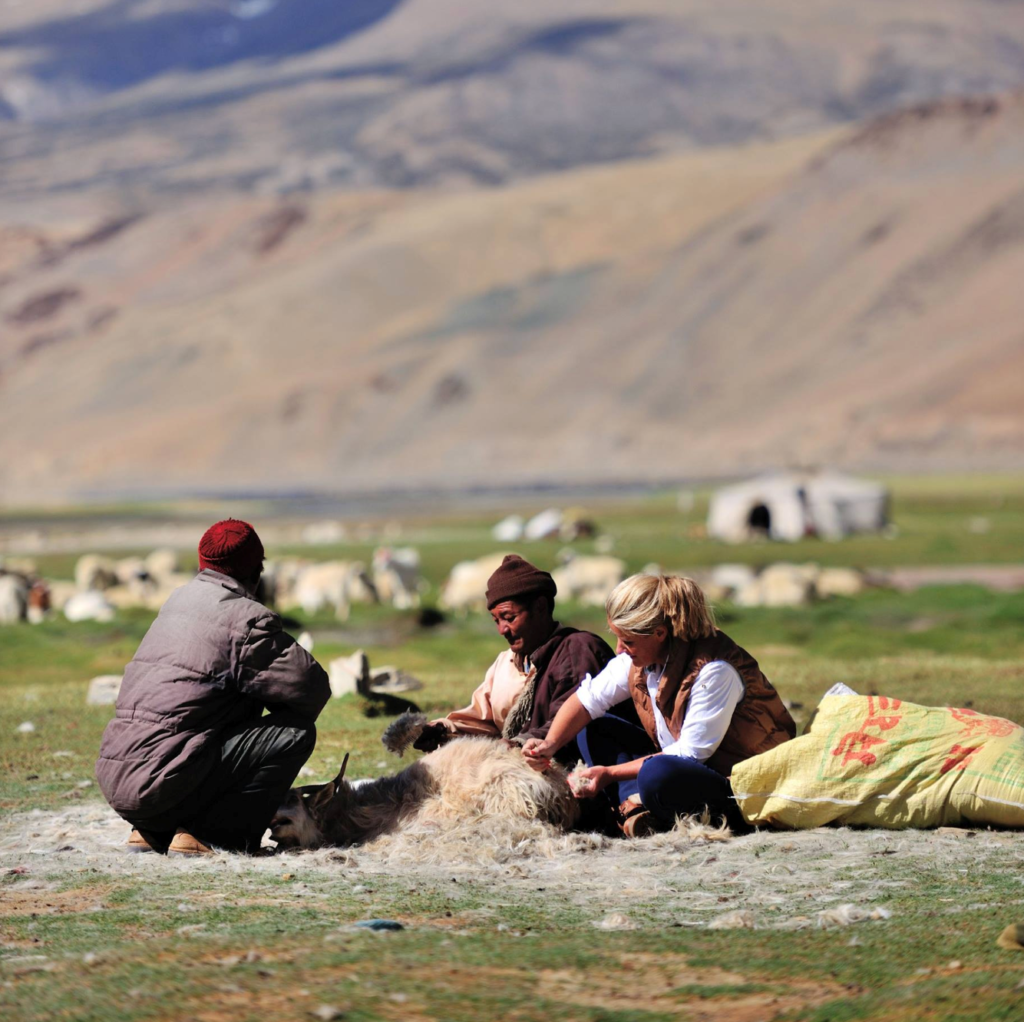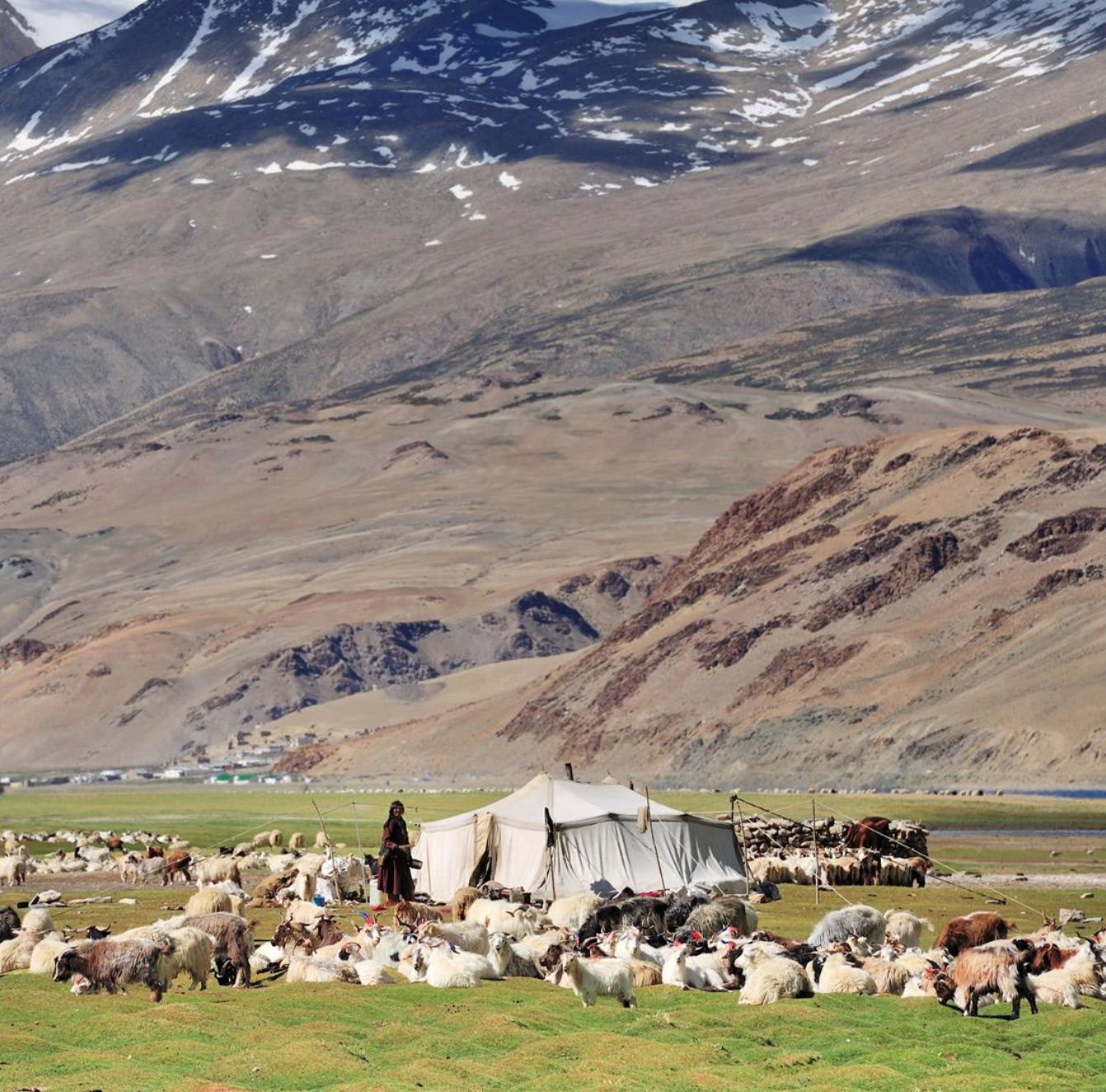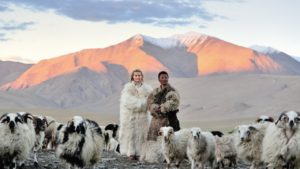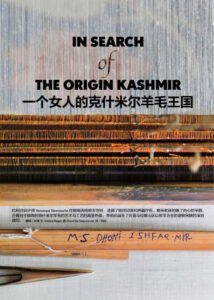A single scarf, bought from a local trader, changed the life of Veronique Vermussche, the proud founder and creative director of Tuinch. The idea behind the brand came to her after a journey through the mountains of India and the Himalayas.
Veronique went in search of the highest quality and purest cashmere and pashmina wool with which to make garments. After a long search, she found exactly what she was looking for, made by Tibetan nomads.
The Tibetan nomads
The Tibetan nomads are a group of people who have settled in the Tibetan highlands. They don’t have a permanent place of residence: with their flocks of sheep, goats and yaks, they travel to different areas of the mountains on traditional migration routes in search of grazing pastures to provide sufficient food for their animals. Temperatures can drop as low as -30°C or -40°C.
In addition to looking after their livestock, this nomadic population earns money by producing cashmere. This age-old tradition is incredibly important to the nomads and is passed down from parent to child. They are therefore opposed to the mass production of cashmere which is common in countries including China. The very poor quality of these garments, which feature a blend of other fabrics, is not comparable to real cashmere in any way.
The Tibetan nomads and cashmere
Men are primarily responsible for taking care of the animals but are also in charge of combing the goats in springtime. They collect the soft undercoat, which is used to produce cashmere wool, by hand. This undercoat is thoroughly washed before the weaving process can begin.
Women spin the wool into thread, spending more than half of their time spinning while the men travel with their herds. After the wool has been spun, cashmere fabrics are woven by hand and embroidered by the men. Every item of cashmere requires hours of time and hard work: anyone who buys a 100% cashmere garment at Tuinch can be sure that it represents real value for money.
Today, Tuinch’s handcrafted works of art are made by around 200 craftsmen and women. The brand provides employment for these people and, more importantly, ensures fair working conditions for them.








